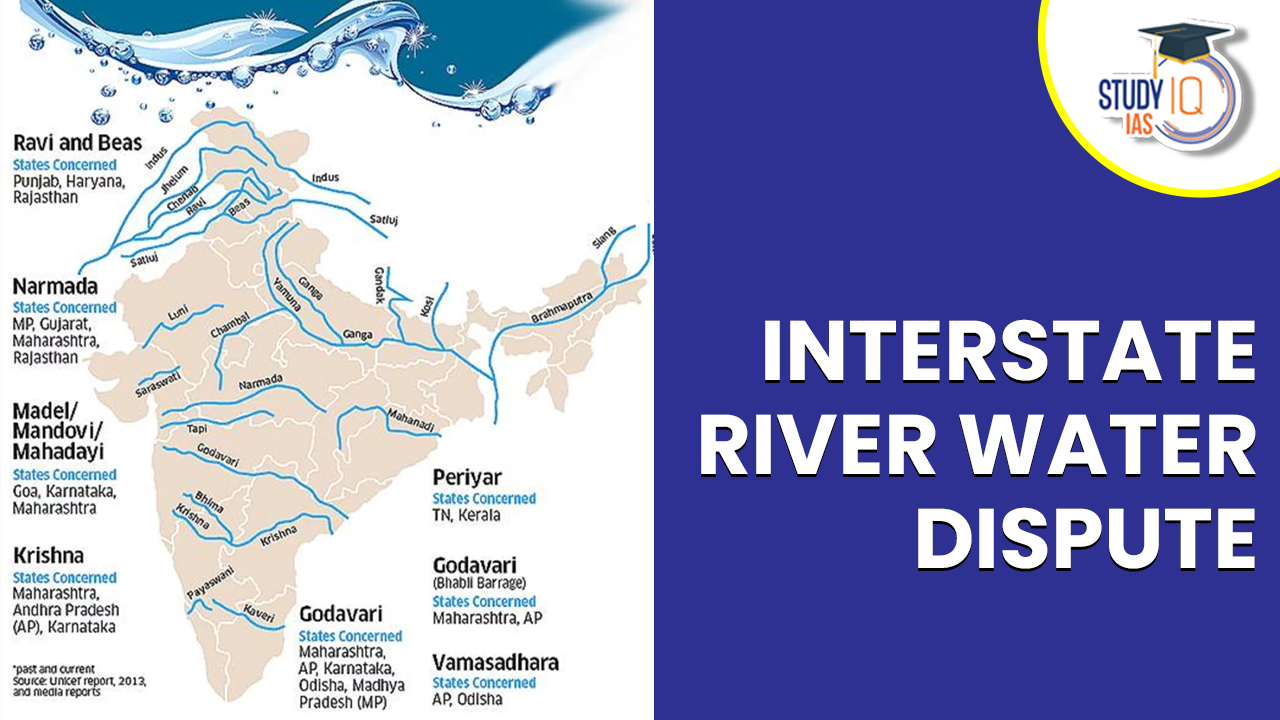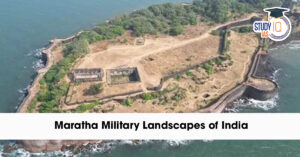Table of Contents
Context: The Karnataka government has asked the Supreme Court to instruct the Cauvery Water Management Authority (CWMA) to review its recent decision about maintaining a flow of 5,000 cubic feet per second (cusecs) of Cauvery River water to Tamil Nadu.
More on the News:
- This CWMA’s direction was in the backdrop of the TN government seeking the Court to ensure the availability of the specified quantity of water at Biligundlu on the inter-State border for the remainder of the month early 2023.
- It also urged the Court to direct Karnataka to ensure the release of 36.76 TMC (thousand million cubic feet) stipulated for September 2023 as per the Cauvery Water Disputes Tribunal (CWDT)’s final award of February 2007 that was modified by the SC in 2018.
Understanding the Cauvery River Dispute:
- The dispute involves 3 states and one Union Territory (Tamil Nadu, Kerala, Karnataka and Puducherry).
- The dispute is almost 150 years old and dates to the two agreements of arbitration in 1892 and 1924 between the then Madras presidency and Mysore.
- It entailed the principle that the upper riparian state must obtain consent of lower riparian state for any construction activity viz. reservoir on the river Cauvery.
- From 1974, Karnataka started diverting water into its four newly made reservoirs, without the consent of Tamil Nadu resulting in a dispute.
- To resolve the matter, the CWDT (Cauvery Water Disputes Tribunal) was established in 1990 which took 17 years to arrive at the final order (2007) on how Cauvery water should be shared between the 4 riparian states in normal rainfall conditions.
- CWDT was constituted by the Central Government, in exercise of the powers conferred by section 4 of the Inter-State River Water Disputes Act, 1956.
River Cauvery:
- Cauvery (or Kaveri) is the largest river in the state and originates at Talakaveri in the Brahmagiri hills of the Western Ghats in Karnataka.
- It is often called the Dakshina Ganga (the Ganges of the South) and considered one of the sacred rivers of India.
- It is known as ‘Ponni’ in Tamil, also known as Ganga of the south, and it is the fourth largest river of southern India.
- The origin of the River Kaveri, is a famous pilgrimage and tourist spot set amidst Brahmagiri Hills near Madikeri in Coorg.
- The tributaries of the Kaveri include:
- Harangi, Hemavathi (origin in western Ghats joins the river Kaveri near Krishnarajasagar), Lakshmana tirtha.
- Kabini (originates in Kerala and flows eastward and joins the Kaveri at Tirumakudalu, Narasipur).
- Shimsha, Arkavati, Suvarnavathi or Honnuholé, Bhavani, Lokapavani, Noyyal, Amaravati.
Course of Events:
- The Cauvery Water Disputes Tribunal directed that in distress years, a pro-rata basis shall be used for sharing the water.
- The government took 6 more year and notified the order in 2013.
- This was challenged in SC (Supreme Court) which directed Karnataka to release 12000 cusecs of water to Tamil Nadu prompting protests in the State.
- The final verdict of the SC came in 2018 where it declared the Cauvery a national asset and largely upheld the water-sharing arrangements finalised by the CWDT and reduced the allocation of water from Karnataka to Tamil Nadu.
- As per the SC, Karnataka would get 284.75 thousand million cubic feet (tmcft), Tamil Nadu 404.25 tmcft, Kerala 30 tmcft and Puducherry 7 tmcft.
- It also directed the Centre to notify the Cauvery Management Scheme.
- The central government notified the ‘Cauvery Water Management Scheme’ in June 2018, constituting the ‘Cauvery Water Management Authority’ and the ‘Cauvery Water Regulation Committee’ to give effect to the decision.
How is the water shared between the two States currently?
- A monthly schedule is in place for Karnataka, the upper riparian State of the Cauvery basin, to release water to Tamil Nadu.
- As per the schedule, Karnataka is to make available to Tamil Nadu at Biligundlu a total quantity of 177.25 TMC in a “normal” water year (June to May).
- Of this quantity, 123.14 TMC is to be given during the period from June to September, also marking the season of the southwest monsoon.
- It is during this period that the Cauvery issue gets flared up, when the monsoon yields lower rainfall than anticipated.
Mechanism for Inter-State River Water Disputes Resolution
| Constitutional provisions |
|
| Laws enacted by the parliament under Article 262 |
|


 List of Governor of States in India, Con...
List of Governor of States in India, Con...
 Daily Quiz 15 July 2025
Daily Quiz 15 July 2025
 Maratha Military Landscapes of India Add...
Maratha Military Landscapes of India Add...





















